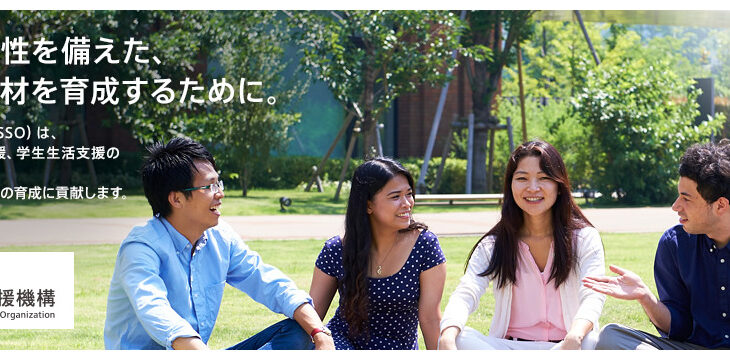コンニチハ!お元気ですか?
異文化コミュニケーション研究所(R)所長の島崎です。(^^)
Konnichiwa! How are you?
This is Shimazaki, Director of the Institute for Cross-cultural Communications(R) [ICCC].
ゴールデンウィークの間も、東京では不要不急の外出に規制が掛かっていました。
やっと大学もスタートしたのに、本当に気持ちが落ち込んでしまいますよね。
でも、必ず私たちはコロナ禍を克服できます!気持ちを強く持って生きましょう!
Even during Golden Week, there were restrictions on “unnecessary and unurgent” going out in Tokyo.
Even though you finally started university, you must be really depressed for remote classes.
But surely we can overcome covid-19! Let’s live with strong feelings!


Meeting under the Japanese culture
日本人の会議
日本人は、会議で物事を決めるのがとても下手な人種です。
The Japanese are a very poor race to decide things at meetings.
太平洋戦争でさえ、アメリカの国力を知っている知識人たちは全員反対していました。
Even in the Pacific War, all intellectuals who knew the power of the United States were against it.
天皇陛下も内心、戦争に反対でした。でも、内閣の閣僚たちの顔を潰すことを避ける為、天皇陛下自身は反対ということは言いませんでした。
The Emperor was also inwardly opposed to the war. However, in order to avoid disgracing the cabinet ministers, the Emperor himself did not say the opposite.
信じられないことですが、宣戦するかどうかを決める「御前会議」でも、会議に参加した人全員が「誰かが反対」と言ってくれるのを待ってのだそうです。
Believe it or not, even at the “Gozen Kaigi”,which is the meeting of the top leaders of Japan to make the final decision of whether to declare war, all people who attended the meeting were waiting for someone’s voice of “disagree.”
誰も反対意見を言えなかったため、戦争してしまった。
No one could disagree, so the war started.
反対意見を言えなかった理由は、「日本はアメリカに勝てない」ということを言えなかったからです。The reason people couldn’t disagree was because they couldn’t say “Japan can’t beat the United States.”
なぜなら軍隊のメンツが立たない、天皇陛下の顔に泥を塗ることになると、皆が考えていたからです。Because everyone thought that it would mean that the army is weak, and it would disgrace the Emperor.
そんな文化は、今でも続いています。
Such a culture is still going on.
上司や目上の人の意見は、どんなに問題があると思っても、安易に全否定してはいけない。
The opinions of superiors should not be easily denied, no matter how problematic they may be.
まずは、その意見を尊重しなくてはなりません。そうしないと、相手のメンツを潰してしまうからです。
First of all, Japanese people must respect that opinion of superiors. If you don’t, it is the same as that you’ll disgrace them.
全否定は、会議の雰囲気を悪くすると日本人は考えます。
The Japanese think that all denials make the atmosphere of the meeting worse.
そして、心の中で呟くのです。
「そこまで言わなくたっていいじゃない。彼が可哀想じゃないか。」
「礼をわきまえていない。上司にそんな言葉はないだろう。」
People mutter in their heart….
“You don’t have to say that much! Isn’t he sorry?”
“You don’t know how to thank him. There is no such words to your boss.”
そうです「意見の内容」よりも、「その場の雰囲気」を大切にするのが日本文化です。
That is the Japanese culture. Japanese people respect the values of “the atmosphere” rather than “the content of the opinion”.
ですから「賛成」といっても、心の中は「反対」なのかもしれません。
Therefore, even if someone say “agree”, that may be “disagree” in their heart.
分かりずらいですよね。
It’s hard to understand, isn’t it?
それでは外国人の皆さんも、そんな日本的な考え方を踏襲する必要があるでしょうか?
Then, do foreigners need to follow such a Japanese way of thinking?
私は、その必要性はないと考えています。
I don’t think it’s necessary.
皆さんは日本人ではないからです。ですから、率直に意見を述べれば良いのです。
その方が、日本人にとってもプラスになります。
Because you are not Japanese. So you just have to be frank.
That is also a plus for Japanese companies.
それが、外国人の皆さんの価値の一つです。(^^)
That is one of the values of foreigners.


日本語では良く諺を使います。少なくとも、日本の小学生でも知っている諺くらいは皆さんも
知っておいた方がよいので、10回に分けて紹介します(今回で7回目)。是非覚えてください。
We often use proverbs in Japanese. At least you should know the proverbs that Japanese elementary school students know. So I will introduce 50 of them in ten parts. Please remember by all means. (This is the 7th one.)
31.七転び八起き(ななころびやおき)
意味:何度失敗しても、あきらめずに立ち上がること
英語表現: Always rising after a fall.
32.二階から目薬(にかいからめぐすり)
意味:思うように物事がいかなくて、もどかしくてじれったいこと
英語表現: That’s a terribly inefficient way to do it.
33.逃がした魚は大きい(にがしたさかなはおおきい)
意味:おしくも手にいれられないかったものほど、すばらしく思えること
英語表現: Every fish that escapes appears greater than it is.
34.二兎を追うものは一兎をも得ず(にとをおうものはいっとをもえず)
意味:二つのものを手に入れようとすると、失敗してしまうということ
英語表現: If you chase two rabbits, you will not catch either one .
35.猫の手も借りたい(ねこのてもかりたい)
意味:とてもいそがしく、だれでもいいから手伝ってほしいということ
英語表現: We are so busy we’ll take any help we can get.
■ 異文化コミュニケーション研究所(R)からのメッセージ
日本企業の生き残り・革新のためには『人財の多様性』が不可欠です。
ところが、多くの日本企業は外国人を採用することを躊躇しています。言葉や文化が違うことを恐れているのが現状です。
私たちのミッションは、そんな日本企業に、日本語が使え日本文化に造詣がある「優秀な留学生」を紹介し、コンサルティングをすることです。
私たちは、あなた方のことをglobalforce(高度外国人財)と呼びます。そして、日本企業が、多様な異文化視点を持つglobalforceを活用することで「新たな価値の創造」ができると私たちは信じています。
日本の大学で学んだ皆さんは、真面目で、優秀な人です。皆さんが日本企業で活躍することが、日本にとっても意味のあることです。 是非、日本で頑張って下さい。
私たちは、いつでも、皆さんの力になります。
■Message from The Institute for Cross-cultural Communications(ICCC)
“Diversity” of human resource is essential for the survival and innovation of Japanese companies.
However, many Japanese companies are hesitant to hire foreigners. The reality is that they are
afraid of different languages and cultures.
Our missions are to introduce “excellent international students” to Japanese companies
and consult their recruitment and diversity. The students who studied in Japanese universities
can speak Japanese and have a good knowledge of Japanese culture, they have big potential.
ICCC calls you “globalforce“. We believe that Japanese companies can “create new value”
by utilizing “globalforce“, which has diverse cross-cultural perspectives. Everyone who
studied at Japanese university is a hard worker and talented. It is meaningful for Japan
that “globalforce” works in Japanese companies.
We are your best partner in Japan.






